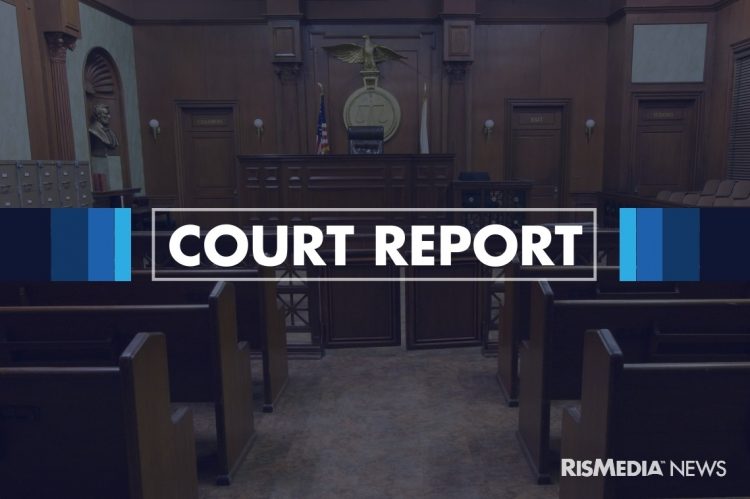The COURT REPORT is RISMedia’s weekly look at current and upcoming lawsuits, investigations and other legal developments around real estate.
Appeals filed to derail NAR settlement
Following Judge Stephen R. Bough’s final approval of the NAR settlement agreement on Nov. 27, 2024, four appeals have been filed against it.
The appeals are all filed on different merits. One appeal, filed by a plaintiffs’ lawyer in an NAR copy-cat case, claimed the settlement does not meet “fairness and adequacy,” due to, for instance, many smaller brokerages being released from liability and obligation to pay into the settlement fund.
Another was filed on behalf of homebuyer plaintiffs. Attorneys have argued these individuals should be excluded from the settlement class due to having allegedly suffered “twice” the damage when buying and selling their home. The plaintiffs are thus seeking a modification to the agreement so buyers have the ability to sue the same defendants for the same behavior.
Two further appeals, filed on behalf of New York-based plaintiffs, argue that their cases against the Real Estate Board of New York (REBNY) is substantially different enough from NAR so as to merit a carve-out.
Weichert, following eXp’s game plan, denied stay in Gibson case
In November 2024, Weichert filed for a stay in the Gibson v. NAR commission lawsuit, on the grounds they had settled in a similar case (Hooper v. NAR, filed in Georgia).
On Dec. 5, 2024, Judge Stephen R. Bough denied this stay request. The denial cites Weichert’s apparent settlement strategy as potentially a “reverse action,” where defendants will settle with some plaintiffs to “pit the plaintiffs against each other” and drive down the overall settlement cost. Bough’s denial describes Weichert’s conduct as “questionable,” see below:
“The Court finds that (Gibson) Plaintiffs raise genuine issues of potentially questionable behavior regarding Weichert’s Hooper settlement which warrant further discovery in this case. Plaintiffs allege that following a breakdown in settlement discussions with Plaintiffs, Weichert straight away announced a settlement with the Hooper plaintiffs where ‘virtually no litigation has occurred’ and the ‘(c)ounsel for (plaintiffs) in the Hooper case…stated that they did not consider…financials when negotiating a settlement.’”
Weichert’s strategy echoes one employed by eXp, which also settled in a smaller case and attempted to seek a stay in Gibson. As with Weichert, Bough denied eXp’s request for a stay.
Rocket mortgage sues Department of Housing and Urban Development
On December 5, Rocket Mortgage (part of Rocket Companies) filed a lawsuit against the U.S. Department of Housing and Urban Development (HUD). HUD currently mandates both appraiser independence from lenders and holds lenders liable for appraiser misconduct. Rocket is suing to end what they characterize as an “unreasonable” conflict created by this dynamic.
In November, the Department of Justice (DOJ) sued Rocket and two appraisal firms on these grounds, citing violations of the Fair Housing Act. In conjunction with its suit against HUD, Rocket is also filing a motion to dismiss the DOJ’s suit against them.
“It is unreasonable that the DOJ chose to sue Rocket Mortgage for the conduct of an independent appraiser,” said Bill Emerson, president of Rocket Companies, in a release. “We will not stand idly by while the courts are used as venues to leverage our company’s name to publicize the case instead of pursuing justice against those who may have committed wrongdoing.
Facing lawsuits, EasyKnock closes down
EasyKnock, a real estate company that offered sale-leasebacks to homeowners, officially shut down on Thurs., Dec. 5, 2024. The company website now reads:
“After many years of serving consumers, EasyKnock has closed its doors. We are deeply grateful for the trust placed in us to be part of the financial journey of so many. While EasyKnock may no longer be around, arrangements have been made to ensure continued services for our customers.”
The company had been facing numerous legal complaints, with some consumers claiming fraud and misrepresentation in the company’s contracts. In May 2024, the Michigan Attorney General’s office filed a cease and desist against EasyKnock for “unlawful business practices.” A lawsuit against EasyKnock filed in Texas was found in favor of the defendant in October 2024. EasyKnock Co-Founder and CEO Jarred Kessler claimed the verdict “(affirmed) the integrity of EasyKnock’s business model,” but the company still faced scrutiny. The Federal Trade Commission (FTC) released a consumer guideline notice the day after the Texas lawsuit ruling calling buyer-leaseback agreements a “risky business.”

